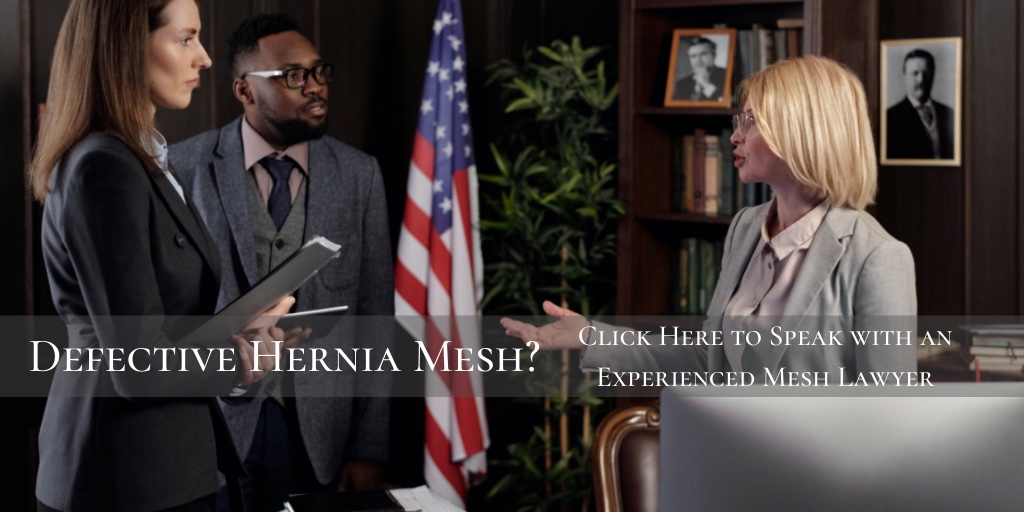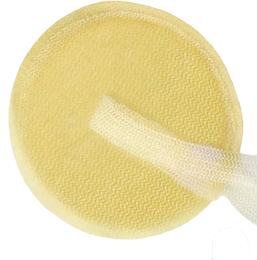The C-Qur hernia mesh product line (pronounced “secure”) was introduced by Atrium Medical Corporation in March 2006 with the promise that its combination of standard synthetic polypropylene mesh and Omega 3 Fatty Acid Fish Oil (“O3FA”) would be superior to other contemporary mesh products. The C-Qur line was, for its time, a novel approach by a relatively small medical device firm founded in 1981. Indeed, the C-Qur product family would help push Atrium out of obscurity and triple its revenues to $200 million between 2004-2011, while making it a lucrative acquisition target by larger device manufacturing firms.
Regrettably, the promise of Atrium’s C-Qur product line was soon riddled with adverse event reports to the U.S. Food and Drug Administration (FDA) claiming high rates of infection and other problems associated with the device. The issues associated with C-Qur elevated the FDA’s enforcement attention to the point that Atrium recalled the C-Qur line in 2013. Later in 2015 Atrium was compelled by the FDA to cease the manufacturing of the C-Qur line at its facility in Hudson, New Hampshire, for sanitary conditions and quality assurance issues. Today, nearly 2,200 cases are pending in a multidistrict litigation (MDL) pending in a New Hampshire federal court with patients alleging that the C-Qur meshes implanted in them were not only defective and caused harm, but that C-Qur knew of the issues and attempted to cover them up.
Background of the C-Qur Product Line
Compared with other medical device manufacturing firms, Atrium was a relatively obscure start-up founded in 1981 that specialized in the manufacture of chest drainage machinery and related vascular products. In 1993, the firm branched out with its first hernia mesh devices: the ProLite Mesh and later the ProLite Ultra Mesh. The market for mesh devices quickly became a key revenue channel for Atrium and led to the introduction of its more prolific C-Qur family of mesh products starting in 2006:
- C-Qur Mesh
- C-Qur Tac Shield
- C-Qur V-Patch
- C-Qur Edge
- C-Qur Lite Mesh V-Patch
- C-Qur Edge Mesg V-Patch
- C-Qur V-Patch Mesh
- C-Qur OVT Mesh
- C-Qur RPM Mesh
- C-Qur Mosaic
- C-Qur FX
- C-Qur CentriFX
The C-Qur line was approved for the U.S. market pursuant to the fast-track 510(k) clearance process which allowed Atrium to skip over the ordinary research concerning safety and effectiveness for other devices requiring pre-market approval. In its filings with the FDA, Atrium claimed that 510(k) clearance was warranted because C-Qur mesh was “substantially equivalent” to earlier mesh designs even though it incorporated O3FA fatty fish oils into the design – the first ever to do so; and despite knowledge by both physicians and researchers alike that O3FA carries with it the potential for life-threatening allergic reactions.
Acquisition by the Getinge Group
By 2011, Atrium had swollen to become a company with revenues in excess of $200 million annually, more than 700 employees, a sales force throughout North America, Europe, Asia, and Australia/New Zealand, and 106 distributors across 102 countries. In that moment, Getinge Group, a multi-billion dollar Swedish device manufacturer moved-in and orchestrated the acquisition of Atrium for $680 million through a German subsidiary, Maquet.
Advertised Uses for C-Qur Mesh
Initially, C-Qur was intended as a mesh for surgical use with ventral and inguinal hernia conditions. C-Qur was advertised as a novel approach to implantation and a way to ameliorate past issues with polypropylene mesh organ adhesion by virtue of its coating with O3FA, a pharmaceutical-grade fatty-fish acid coating.
Issues and Complications Associated with C-Qur Mesh
It is well-established that certain proteins in oily bio-product derived from fish are bound to cause allergic reactions. Common human responses to fish proteins such as those contained in fatty fish oil can range from increased sensitivity and rashes – all the way up to death. Concerns about the possibility of allergenic contamination were allayed by assurances that the O3FA coating utilized by Atrium would be screened, tested, and inspected to ensure that no non-soluble proteins would be present in the coating.
Almost immediately following the introduction of the C-Qur line and for years following afterward, physicians and surgeons reported disturbing levels of infection and other conditions following implantation with the C-Qur line. One “adverse event” report to the FDA involved a woman implanted with C-Qur mesh who began suffering intense pain and a “constant burning sensation” within 6 hours following her hernia repair procedure. She was immediately taken back for a second operation wherein the surgeon noted that the woman’s abdomen and the pelvic area looked like “a bomb went off” and “like a third-degree burn” due to the intense infection and inflammation.
Other similar adverse event reports have C-Qur mesh implantees complaining of “purulent discharge” and swelling from abdomen wounds. A patient in 2012 required mesh removal, drainage of his abdomen, treatment with intravenous antibiotics, surgery for obstruction, and five days in the hospital less than a week after a hernia procedure involving C-Qur mesh.
FDA Warning Letter and Class II Recall of C-Qur
The FDA expressed serious concerns to Atrium in a letter dated October 11, 2012, wherein the agency believed that Atrium was not adequately addressing the issues corresponding to numerous adverse events involving C-Qur mesh. Most of these complaints involved infections and other reactions to the C-Qur mesh that pointed directly at either insufficient or deficient sterility and sanitary procedures at the point of manufacture.
In August 2013, the FDA announced a Class II recall of the C-Qur Edge Mesh due to manufacturing and sterilization issues that caused the device to adhere to its packaging after exposure to conditions of high humidity. Although the recall impacted over 1,500 meshes, Atrium did not pull any products from shelves and merely warned physicians to inspect meshes prior to implantation.
FDA Lawsuit and Consent Decree of Permanent Injunction
The issues with Atrium and C-Qur became so pronounced that the U.S. Department of Justice, on behalf of the FDA, filed a lawsuit in federal court in February 2015, to stop Atrium from the production of meshes at its production line in Hudson, New Hampshire. The lawsuit was followed by a permanent injunction and “consent decree” which accused Atrium of violating the Federal Food, Drug and Cosmetic Act (FFDCA) by putting mesh devices on the market which were illegally “adulterated” and mis-branded; and which were not manufactured utilizing “current good manufacturing processes”.
C-Qur Mesh Lawsuits
There, at present, over 2,200 lawsuits naming Atrium and its C-Qur mesh line seeking damages for injuries, suffering, and medical expenses. Lawsuits involving C-Qur mesh accumulated to the point that in 2016, they were consolidated into a single multidistrict litigation taking place in federal court in New Hampshire. The first “bellwether” trial in this MDL (MDL-2753) is expected in late 2020.
Sources Cited (12)
1) “About the Consent Decree” https://www.atriummed.com/
2) “Daniel Hicks v. Atrium Medical Corporation, et al.” https://casetext.com/case/hicks-v-atrium-med-corp-in-re-atrium-med-corp-1
3) “United States of America v. Atrium Medical Corporation, et al.” https://www.law360.com/cases/54d0e800bf371b2a10000001
4) “MAUDE Adverse Event Report: ATRIUM MEDICAL CORP ATRIUM C-QUR MESH HERNIA MESH 8.9CM X 8.9CM 3 1/2IN X 3 1/2 IN” https://www.accessdata.fda.gov/scripts/cdrh/cfdocs/cfMAUDE/detail.cfm?mdrfoi__id=2639496
5) “MAUDE Adverse Event Report: ATRIUM MEDICAL CORPORATION C-QUR MESH COATED WITH OMEGA-3 FISH OIL 7.5 X 12 CM COATED HERNIA MESH” https://www.accessdata.fda.gov/scripts/cdrh/cfdocs/cfmaude/detail.cfm?mdrfoi__id=2394781
6) “Class 2 Device Recall C QUR VPatch Mesh” https://www.accessdata.fda.gov/scripts/cdrh/cfdocs/cfres/res.cfm?id=119925
7) “Infection and recurrence rates of the C-QUR V-Patch ™ in ventral hernia repairs” https://pubmed.ncbi.nlm.nih.gov/29907940/
8) “Inflammatory reaction to fish oil coated polypropylene mesh used for laparoscopic incisional hernia repair: a case report” https://www.ncbi.nlm.nih.gov/pmc/articles/PMC4750192/
10) “Number of cases tops 2,000 in hernia mesh litigation against NH firm” https://www.nhbr.com/number-of-cases-top-2000-in-hernia-mesh-litigation-against-nh-firm/
11) “Acquisition of Atrium Medical: 3 October 2011” https://www.getinge.com/anz/about-us/investors/reports-presentations/2011/acquisition-of-atrium-medical/
12) “Getinge: About Us” https://www.getinge.com/anz/about-us/



